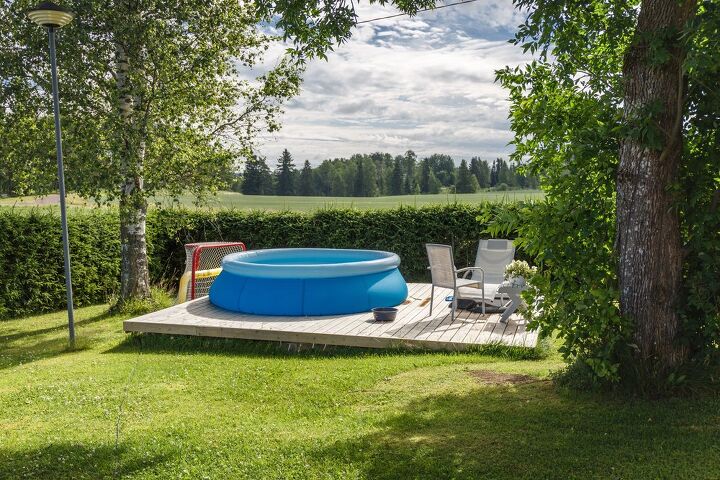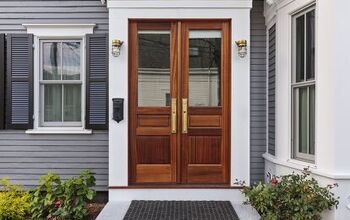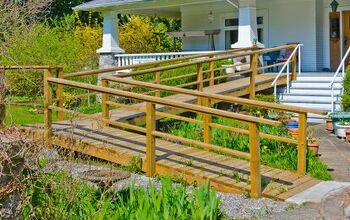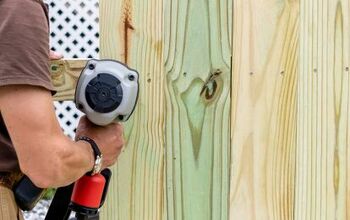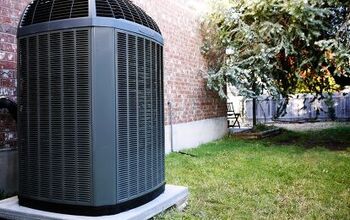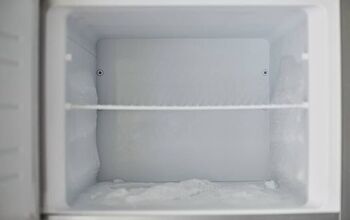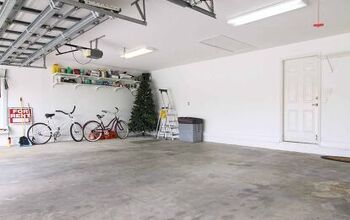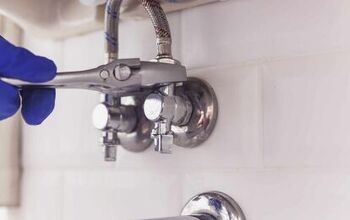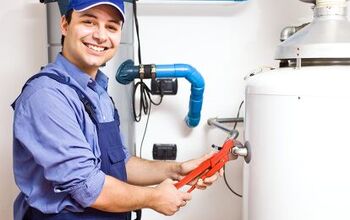Do You Need A Permit For A Temporary Pool? (Find Out Now!)

A temporary pool can be an exciting addition to your yard during the hot summer months. It offers a fun way to cool down, enjoy the season, and spend time with family and friends. But before you purchase a temporary pool, you might be wondering: Do you need a permit?
Rules and regulations vary by location, but temporary pools with less than 3000 gallons don’t usually require a permit. If your pool holds more than 3000 gallons, you may need a building permit and possibly electricity and gas permits. The building permit covers the pool and fence or barrier, and the other permits cover the water pump and heater.
Below, find out more about what a temporary pool is and what type of maintenance and preparation it requires. We’ll also discuss the different types of permits for pools in more detail. Finally, we’ll cover all the pros and cons of getting a temporary pool.
Do You Need a Permit Service?
Get free, zero-commitment quotes from pro contractors near you.

What Is A Temporary Pool?
A temporary pool is an above-ground pool that holds 3000 gallons of water or less. Temporary pools are sometimes called portable pools and seasonal pools. This is because they can be completely drained, moved, and stored away in colder months.
Generally, a temporary pool is a large inflatable swimming pool. There are also some temporary pools that require more assembly. Either way, it’s considered temporary as long as the pool holds less than 3000 gallons of water.
Maintenance
Even though temporary pools aren’t meant to stay in your yard forever, they still require some maintenance. You don’t want to be swimming in unsanitary water!
Therefore, you’ll still need to hook up a pump and filtration system for your temporary pool. This allows you to add chlorine and other chemicals as needed to keep the water sanitary.
Preparation
Another thing to consider with a temporary pool is that you’ll need a large, level area in your yard. If you don’t already have a good spot for your pool, you might need to level the ground first. This can be a time-consuming and potentially costly project.
Is A Permit Needed For A Temporary Pool?
Depending on your local laws and regulations, you might need a permit for a temporary pool. In most places, permits are only necessary for permanent pools. However, what classifies a pool as permanent can vary from state to state.
If your pool qualifies as a permanent pool, you’ll need a building permit. The permit covers the pool and the fence or other barrier that you’ll need to build around it.
But you also might need an electrical permit and a gas permit for a permanent pool. For example, if your pool uses a water pump or heater, you’ll need an electrical permit. If the water pump is powered by natural gas, then you’ll also need a gas permit.
Pros Of Temporary Pools
If you’re curious what types of benefits come with temporary pools, read on!
Temporary
Of course, one of the benefits of choosing a temporary pool is the fact that it’s not permanent. It doesn’t have to stay in your yard forever and is meant to be replaced eventually. Temporary pools are perfect if you’re not ready to commit to a permanent pool.
Affordable
Compared to permanent pools, temporary pools are much more affordable. High-quality permanent pools will run you at least $5000. Meanwhile, you can find some temporary pools for less than $1000.
Portable
Temporary pools can be drained and transported to other locations. If you want to take your pool to a friend’s house and set it up there, you can!
Movable
Want to move your pool to another location in the yard? Just drain the pool and move it; it’s as simple as that. Regularly moving your pool can help prevent damage to your grass.
Low-Maintenance
In comparison to a permanent pool, a temporary pool is much more low-maintenance. Being above ground means there will be less risk of dirt and bugs accumulating. While you should use a pump and filtration system, repairs are typically more straightforward and less expensive.
Easy Installation
Setting up and filling a temporary pool is a DIY project that doesn’t require much expertise. There’s no need to bring in professionals or get a permit (in most cases–it depends on your location).
Cost-Effective
With a lower price and similar utility, temporary pools are often more cost-effective than permanent ones.
Cons Of Temporary Pools
Of course, there are a few drawbacks to consider before purchasing a temporary pool.
Not Ideal For Serious Swimmers
If you want a swimming pool that you can swim laps and dive in, then a temporary pool isn’t right for you. Temporary pools are meant more for kids to play around or for adults to relax in. They’re not usually large or deep enough for a person to dive and swim around in.
Prone To Damage
Due to its temporary nature, this type of pool is more likely to be damaged by bad weather. Another thing to note is that the weight of the pool can damage the grass underneath it. Watch out for sharp objects as well, since they can puncture the pool. This will lead to leakage and a mess in your yard.
May Require Fencing
If you have children or pets, you’ll want to consider adding fencing around your temporary pool. This comes with an added expense and may even require you to hire professionals to get the job done. However, it’s definitely important so that you can ensure your backyard is a safe environment.
Do You Need a Permit Service?
Get free, zero-commitment quotes from pro contractors near you.

Related Questions
What is considered a temporary pool?
A temporary pool is above-ground and holds less than 3000 gallons of water. It can be completely drained and stored away during the winter months.
Do you need a fence for a temporary pool?
If the pool holds water that’s more than 18 inches deep, then you’ll likely need a fence. In most cases, the fence must be at least four feet tall. However, rules regarding pools and fences vary by location.
Are temporary pools worth it?
In general, temporary pools are considered to be worth the investment. However, this can vary depending on how much you use the pool.

With a lifelong passion for writing plus strong enthusiasm for home improvement and DIY projects, joining the team at Upgraded Home was an easy choice. Jessica Allen likes to share helpful information with current and aspiring homeowners. Aside from writing, Jessica loves doing yoga, playing the piano, and dabbling in graphic design.
More by Jessica Allen



